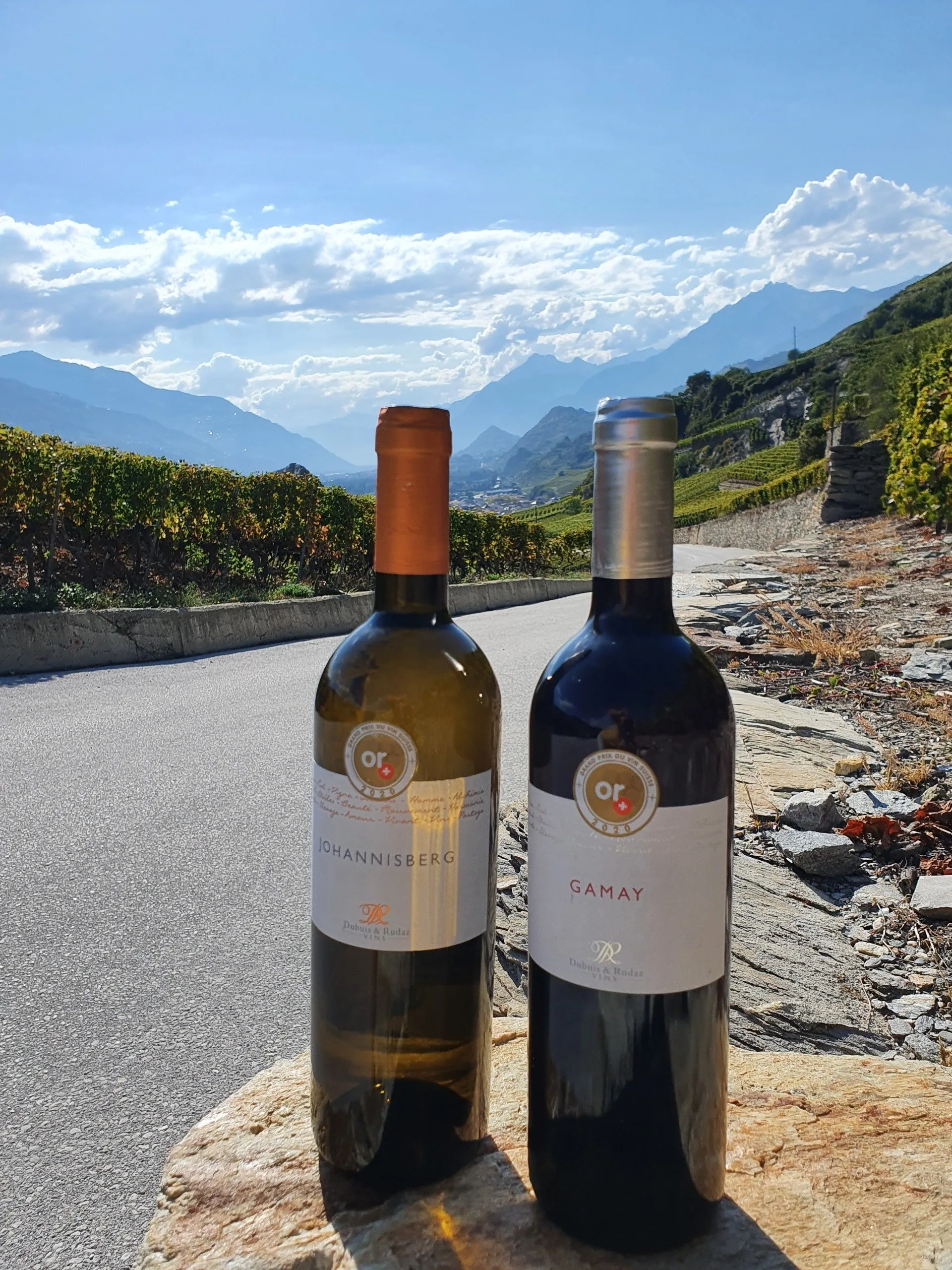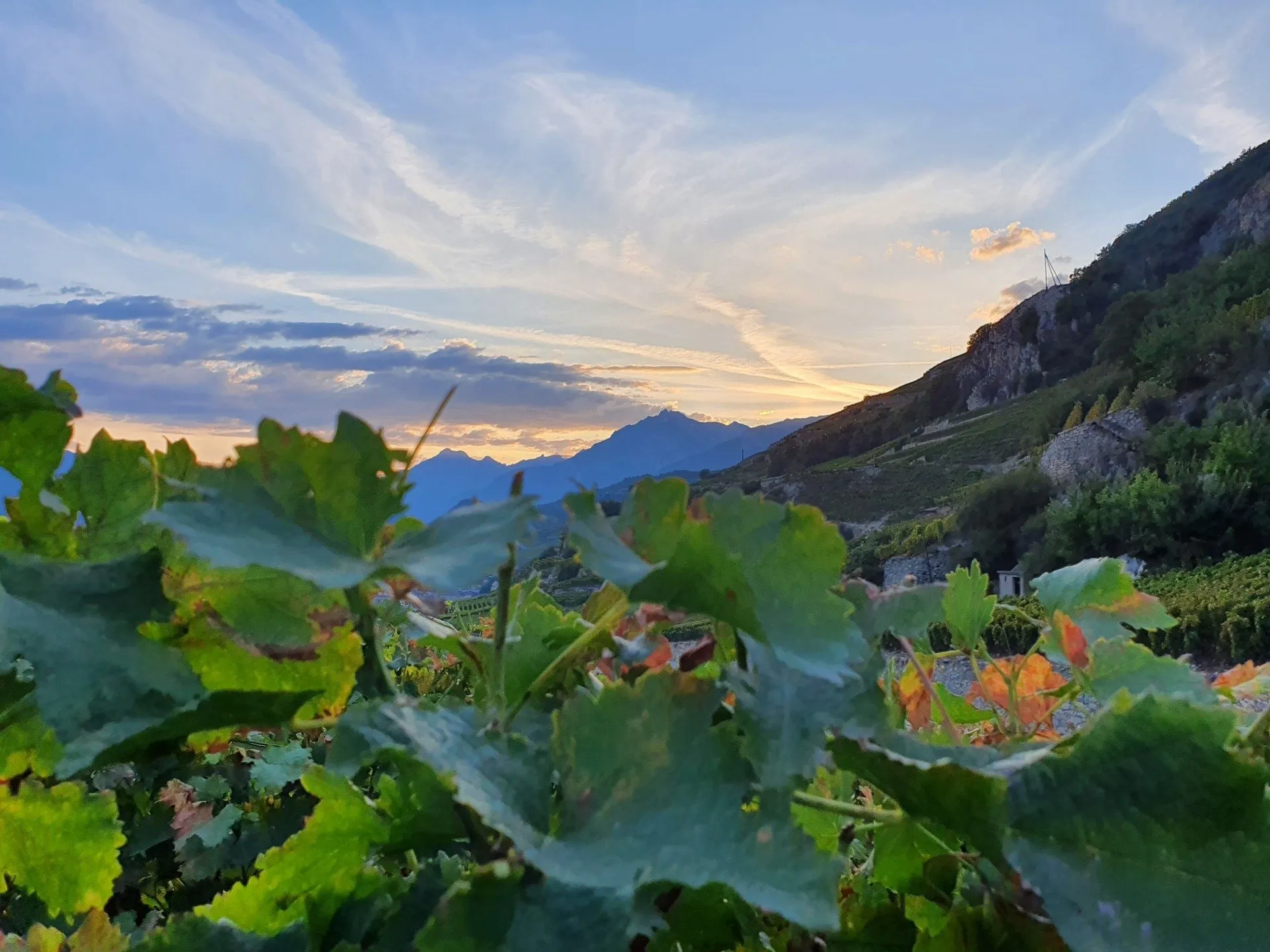Dubuis & Rudaz in the press





Why natural wine?
INTERVIEW “THE COLOR OF WINE” WITH PHILIPPE DUBUIS
Philippe, can we say that you produce natural wines?
Yes, I produce natural wines, that is to say grapes produced with the utmost respect for nature, we no longer use synthetic products, herbicides or chemical fertilizers. We use biodynamic methods on our vines and have been doing so for many years. Since the 2022 vintage, all of our vines have been certified Bio Suisse. All our wines are produced to organic standards and now bear the Bio Suisse Green Bud label, I think I can say without further ado that my wines are natural.
Isn't this environment, this "terroir" that we often talk about, being lost due to increasingly corrective oenology-chemistry, allowing a multitude of manipulations?
Of course, we lose the notion of terroir because we are no longer in symbiosis with it. The ancients left us a soil that has a memory, it is this memory that makes a wine "terroir"! But it is clear that today, explaining and making people appreciate the multitude of different tastes is not commercial enough... This is the fundamental cultural difference between New World wines and Europe: they think in terms of drink, we in terms of wine.
However, they are strong in terms of marketing, their wines appear in competitions…
Yes, that's it, they make wines that are oenologically perfect, no room for terroir, we standardize without defects! Competitions mean nothing if they are run by oenology fundamentalists. It's crazy! Wine is the soul of the earth, we try to interpret this earth a bit like a cook interprets a dish: he has natural ingredients, he arranges them in such a way as to enhance the flavors. I consider myself a "wine cook", I strive to enhance the flavors of the earth. But it is clear that we have entered the era of wine as a drink.
More than oil, water will become a vital issue for our planet, but these so-called New World wines practice massive watering of the vines, far from ecological awareness, what is the situation in Valais?
Valais has experienced years of overproduction that no longer make any sense today. Watering massively means treating the vines massively and then manipulating and correcting the wines massively in the cellar, it's a headlong rush! A good winemaker is first and foremost a good observer of his vines. On certain terrains, for example schists with low water retention, if the vines suffer in a year of extraordinary drought, we can, by lightly watering, avoid water stress. But this is done upstream, and ultimately, a good winemaker waters very little, at most once a season. We are far from the misters of the Napa Valley...
How do you see the future?
For our domain, it is radiant! (laughs). It is ultimately up to consumers to choose and I would say to them: "Drink little but drink well", and the key word to find your way is trust. Trust organized in a chain between the producer who strives to respect his terroir and the serious distributor who searches and tastes to offer only natural wines.
The final sentence?
By tasting our wines you discover the minerality of the soils, the aromatic intensity and the natural colors specific to each grape variety, in short, wines of pleasure!

